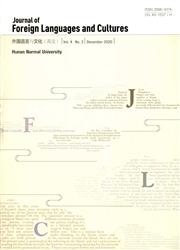Avant-Garde Austalgia
引用次数: 0
Abstract
The Australian avant-garde raises all the contradictions of avant-garde studies in the present time. Antipodal vanguards in the 20th and 21st centuries would grapple with various aspects of Australian national history, being in various ways and times between East and West, the aligned and non-aligned, the political and geopolitical in poetics. The word “Australia,” from the Latin auster, contains meanings for “East.” Most importantly, the Antipodal vanguard exposes the contradictions of Australia’s imperial-colonial past and the struggle to overcome it. In this essay, I begin with the example of a “Dada” poem that comes from an Aboriginal rain dance, as well as the emergence of Dada poetics from the 1950s to the 1970s. Throughout I keep complexities of history and time at the forefront: what is the worth of a “marginal” national literary history of the avant-garde? What does the avant-garde mean outside Europe or the Euro-US? What can Australian Dadaism tell us about the future of avant-garde studies? Does the avant-garde always lead to nostalgia, or “Austalgia,” a hearkening after the past, as much as a striving toward the future?前卫Austalgia
澳大利亚先锋派提出了当代先锋派研究的所有矛盾。20世纪和21世纪的反足先锋们将以不同的方式和时代应对澳大利亚国家历史的各个方面,包括东西方、结盟和不结盟、诗学中的政治和地缘政治。“澳大利亚”一词来自拉丁语auster,包含了“东方”的含义。最重要的是,反足先锋揭露了澳大利亚帝国殖民历史的矛盾和克服它的斗争。在这篇文章中,我从一首来自土著雨舞的“达达”诗的例子开始,以及达达诗学在20世纪50年代至70年代的出现。在整个过程中,我一直把历史和时间的复杂性放在首位:先锋派的“边缘”民族文学史的价值是什么?先锋派在欧洲或欧美之外意味着什么?关于先锋派研究的未来,澳大利亚达达主义能告诉我们什么?先锋派总是导致怀旧,还是“Australia”,一种对过去的倾听,以及对未来的努力?
本文章由计算机程序翻译,如有差异,请以英文原文为准。
求助全文
约1分钟内获得全文
求助全文

 求助内容:
求助内容: 应助结果提醒方式:
应助结果提醒方式:


